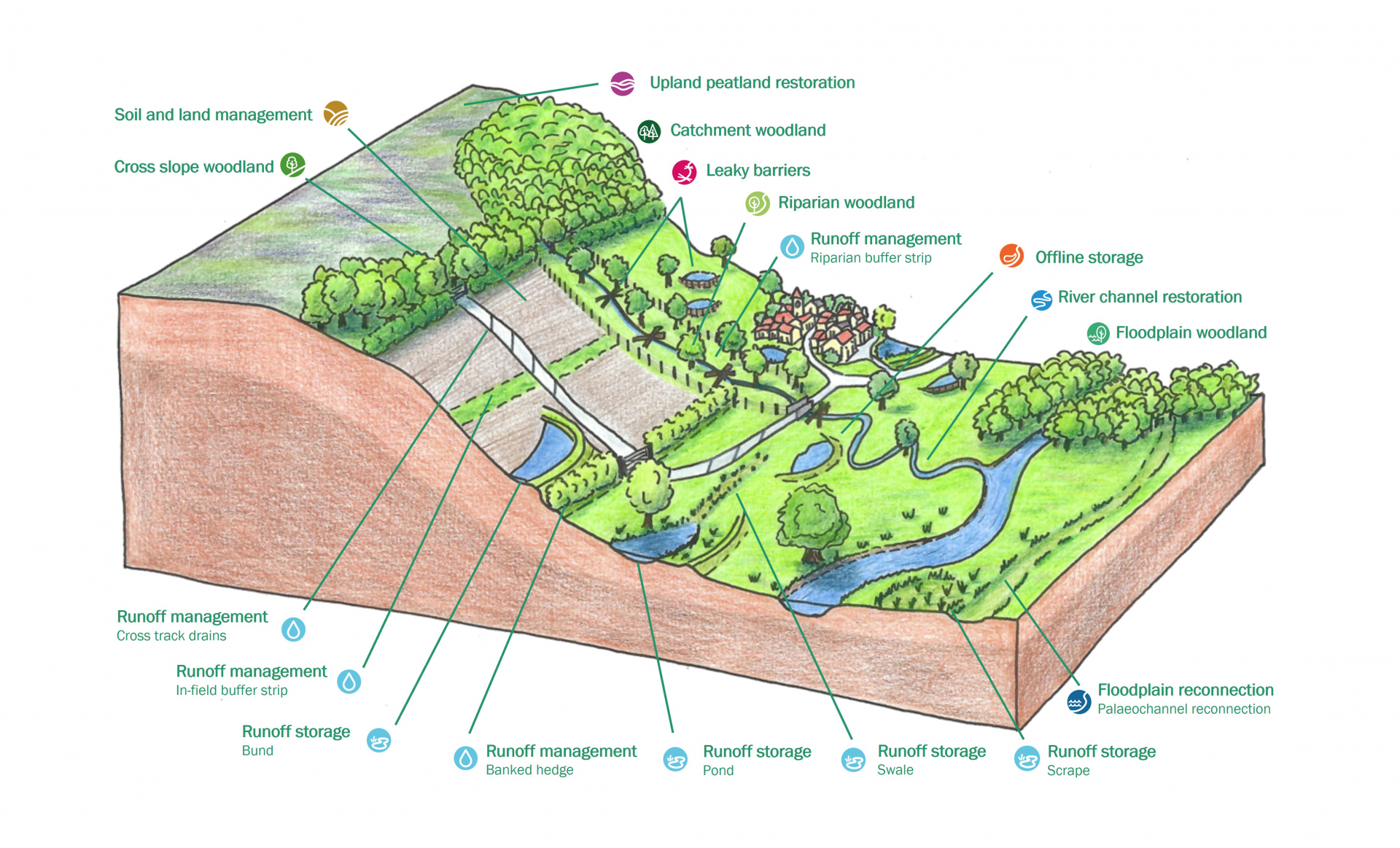New guidance has been published to help drive the implementation of natural flood management (NFM).
Mott MacDonald was contracted to author CIRIA’s new manual that will, for the first time, provide a start-to-finish route map for NFM projects.
The manual sets out key stages in the delivery process of NFM – from initiating a scheme and understanding the interests of local people to selecting, designing and constructing the interventions, as well as monitoring and managing their performance – and the role of local communities, landowners, regulators, utility companies and local authorities.
“We want this to move the dial on NFM,” said Emma Wren, natural flood management lead at Mott MacDonald and lead author of the manual. “This is a practical guide designed to drive implementation of NFM, moving the industry from ‘why’ to ‘how’.”
NFM works with natural processes to reduce flood risk, often across a catchment area and begins by protecting or restoring the natural response to rainfall and reintroducing rivers’ natural processes and features.
“We try to mimic what occurs naturally. In the long term this means ensuring rivers are free to meander and create a more natural form. At the same time, we want to protect our rivers and landscapes from further degradation,” said Emma.
Natural solutions include restoring bends in rivers, changing how land is managed so soil can absorb more water, floodplain restoration, installing leaky barriers, planting trees along rivers, catchment woodland and offline storage areas.
The manual is clear that NFM does not have to work in isolation but works best when part of a network of measures that include engineered solutions and improved flood forecasting alongside education about flood risk. However, the authors believe that we must move away from a relying solely on ‘grey’ infrastructure solutions to manage flood risk issues.
“Engineered flood defences lock us into a cycle of building our way out of trouble,” said Emma. “Natural solutions, on the other hand, seek to break this cycle by addressing the root of the problem.”
Unlike engineered flood defences, NFM produces co-benefits that include improved water quality and soil health, and habitat compensation and carbon sequestration – helping to address the climate and ecological emergencies facing the world. With planning, NFM can also provide recreational opportunities and access to green space.
“Often the monetary value of the co-benefits will exceed the flood risk benefits,” explained Emma. “On a project with Eddleston Water, we found that the annual monetised flood risk benefit from the introduction of various NFM features over a 70km2 catchment was approximately £32,000, whereas the value of the co-benefits was around £141,000 a year.”
NFM is becoming embedded in guidance and policy across the UK. In what is the largest scheme of its kind, Mott MacDonald is currently working with the Environment Agency and Leeds City Council to introduce NFM across 700km2 of the River Aire catchment in Yorkshire. While in North Wales the firm is working with Natural Resources Wales to install 12 leaky barriers and 5000m2 of riparian planting in the upper Nant Barrog catchment to help protect the community in Llanfair Talhaiarn in Conwy.



